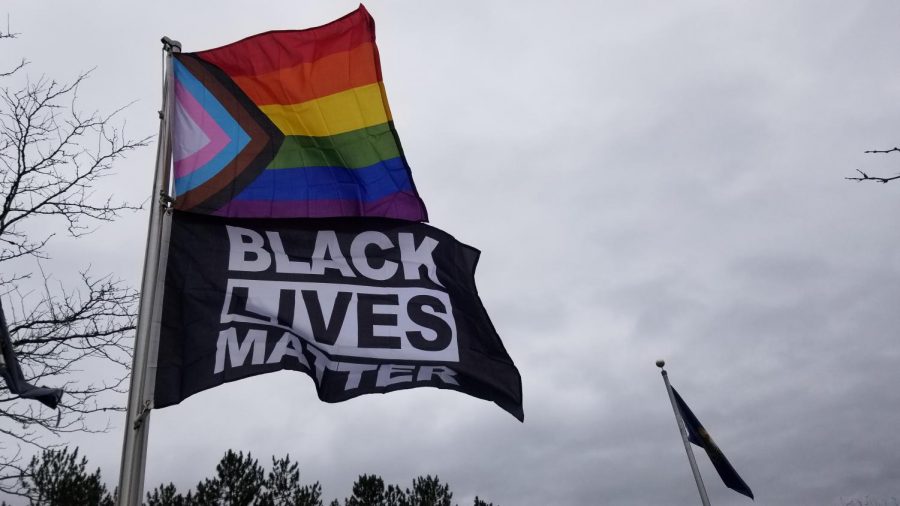The Diversity and Inclusivity Task Force adapts to changing conditions
The NVU website states, “Diversity, equity, and inclusion aren’t just words at NVU — these are our guiding principles.” How is NVU actually centering and prioritizing those guiding principles?
The Diversity and Inclusivity Task Force was created by NVU’s former president, Elaine Collins, with the goal of working on five tasks related to diversity and inclusivity.
The first goal was to “create an equity workshop for incoming faculty, staff, and students.” According to a report from May 2020, the taskforce “developed a framework and protocol for modules for incoming faculty/staff,” as well as identified a training module for students. The report identified funding as a need to continue the work.
The second task for the Diversity and Inclusion Task Force was to “create a protocol for responding to incidents of racism on campus.”
“We really wanted a way to ensure that folks who met any sort of intolerance or harassment on campus that didn’t meet that litmus test of investigation had a way to share their experience,” said Elaine Harvey, current co-chair of the Diversity and Inclusion Task Force.
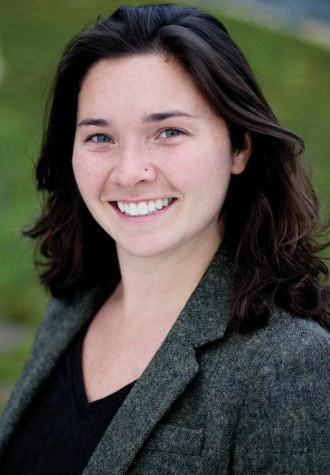
The task force had “identified a need for a system to support students who have experienced discrimination, harm, violence, or harassment immediately after the incident,” according to the May 2020 report. The NVU Inclusion Accountability Protocol was created in response, to be followed immediately after an incident was reported.
Harvey adds that the NVU Inclusion Accountability Protocol is not being used due to a preference for reporting incidents through the policies already in place.
“[The Inclusion Accountability Protocol] went to our general counsel, and then ended up not going anywhere, because the lawyers hope that we really do push everything through Title Nine, and Policy 311,” she said.
The third goal for the task force was to “develop web presence.” The report from the task force reported that the group had “identified space and framework for sharing our work with our community and the public through the NVU Website” and was hoping to collect more information from the task force and keep the webpage up to date.
The fourth task was to create a campus-based survey. “We did get the campus climate survey out,” Harvey said. “We had a couple hundred, about 240 responses across both Lyndon and Johnson campuses, and they gave us a nice baseline to really explore how students, both majority population students and minority populations students, what is it like to be a student on this campus when it comes to identity, etc. That was good, because we’ve never really asked, so having that baseline was really excellent in moving forward and helped us inform our practices.”
Harvey adds that a future goal is for the Campus Climate Survey to be conducted professionally at least once every other year by the Higher Education Research Institute at UCLA, an organization that has done surveys such as the CIRP for NVU in the past.
The fifth and final task was to “adopt equitable hiring practices.” The May 2020 report highlights steps taken to adopt equitable hiring practices, such as collaboration with the Consortium for Faculty Diversity and developing a handbook for equitable hiring practices.
“The search committee that hired me was one of the pilots for what their proposed model would look like,” said Dr. Jae Basiliere, co-chair of the Diversity and Inclusivity Taskforce and NVU-Johnson’s director of the Center for Teaching and learning. “It was one of the best job interviews I’ve ever had, it was so transparent, and it was so kind and so humane.
“When I got here and went behind the scenes, I learned that they actually had done a lot of work, thinking about how to control for interviewer bias and how to think about attracting diverse candidates. They had really done a lot of work to think about how to make this job search good.”
The report highlights needing a human resources director’s collaboration, as well as additional funding, to continue this work.
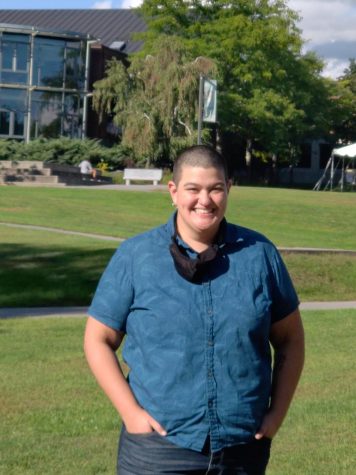
Additionally, students have created an anti-racist pledge.
“For about a year and half, a group of students from all of the Vermont State Colleges institutions have been working on a student-initiated, anti-racist pledge,” Basiliere said. “They worked with an outside consultant, and they drafted and they revised.
“All of the student government associations signed off on it, and then they took it to the Diversity, Equity and Inclusion committee of our Board of Trustees who formally endorsed it and are sending it up to the full board to be formally endorsed by them as well.”
Currently, the task force has changed its approach due to a combination of the pandemic and the pending unification into Vermont State University.
“In some cases, we spent one two or three years working on revising systems, doing research, coming up with structures that just disappeared because we don’t have the structure to support those recommendations or those strategies during times of transition,” said Dr. Hannah Miller, who is co-chair of the Diversity and Inclusivity Task Force along with Harvey and Basiliere.
Harvey agrees that the coming unification poses challenges that may force a shift in the group’s focus, at least in the near future.
“We’ve always been really, really task oriented,” she said, “but with an interim president and the university kind of shifting so much, we just decided to, at least for right now, say, ‘how can we support this community in different ways than just task execution?’”
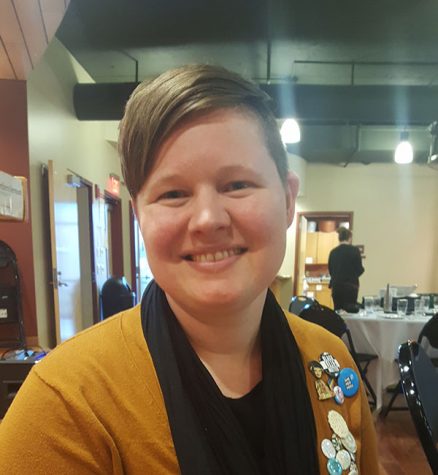
As for what’s next, the Diversity and Inclusivity Task Force has multiple things on the horizon.
“One thing that’s in the works right now is Hannah, Elaine and myself are meeting with leadership from Lyndon FAIR, which is our sort of counterpart group on the Lyndon campus, and we’re talking about how to, starting next year, have one unified NVU group,” said Basiliere.
Additionally, the Task Force is looking into the best way to use a sum of money to benefit the community.
“We actually have funds available, thanks to [former] President Collins,” Harvey said. “When she was departing, she gifted this task force with a sum of money and we are really excited to figure out how to apply it. So that is the next big step.
“We want to fund something that will live on in perpetuity, and not just a one-time expenditure that will get a big pizza party. We want it to be something that leaves a really important legacy and gets to continue to be felt and seen, moving forward.”
In terms of hopes and visions, all three co-chairs are thinking big. With the disruption of transformation come opportunities as the task force is well aware.
“We are in this time of transformation, which means a lot of our systems are being redesigned and re-envisioned,” Miller said. “We have to make sure that diversity, equity and inclusion are integral in those visions and in those redesigns. I think that’s really what we need to focus on next. I also think that we need a chief diversity officer.”
This need for a person or office dedicated to diversity and inclusion was mentioned by other co-chairs, as well as in the Diversity and Inclusivity Task Force’s May 2021 report, which states “In reflection on our work this year, we realize that to sustain this work going forward, we need an Office of Diversity, Equity, and Inclusion.”
The Diversity and Inclusivity Task Force meetings are on the second Tuesdays of each month, from now until May, but there are many additional ways to support the work being done. Students who are interested in getting involved should contact Hannah Miller, Jae Basiliere, or Elaine Harvey.
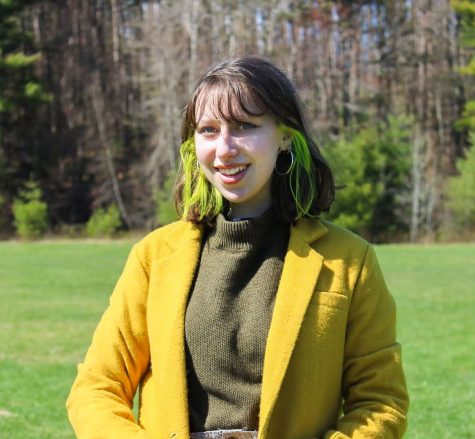
First year
Commuter, from Underhill VT
Fall 2021-Present
I enjoy sewing, Dungeons and Dragons, and eating popcorn.
.-...


